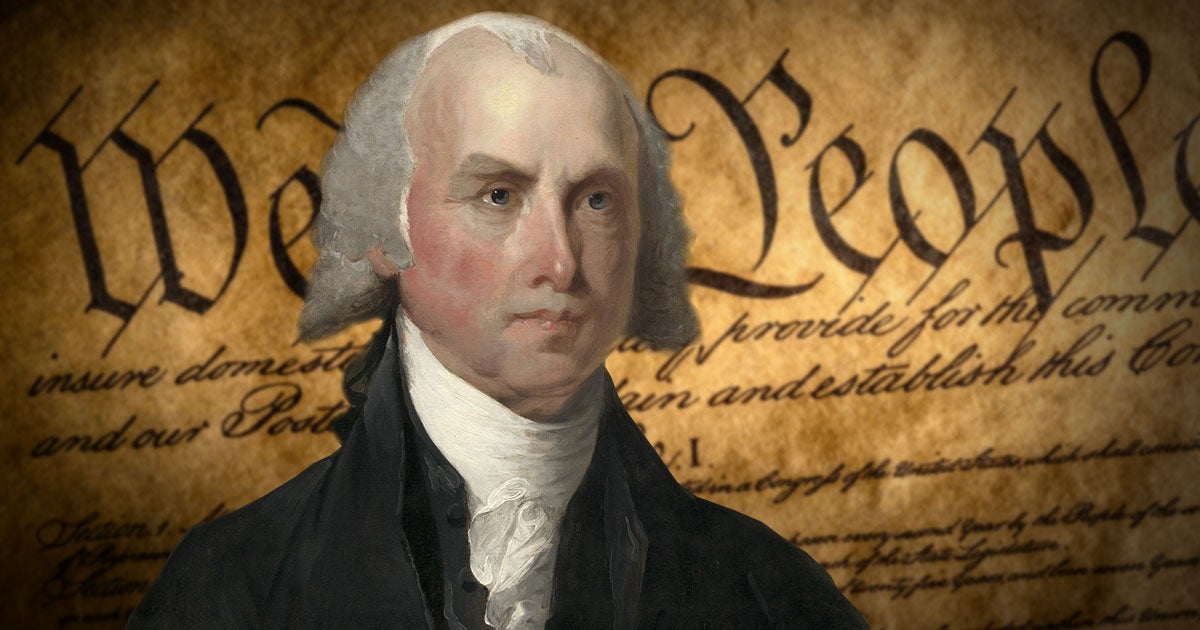
by Liberty McArtor and Jorge Gomez • 5 min read
In today’s cancel culture, it appears no one is safe—not even some of the most revered figures in our nation’s history.
You may have heard of recent efforts to “cancel” heroes such as George Washington and Thomas Jefferson, both who were integral in the formation of our country and who fought for the freedoms enjoyed by all Americans today. Even Abraham Lincoln has come under attack—a president who led our republic through a civil war and one of America’s most divisive periods.
As cancel culture attempts to rewrite history and destroy the achievements of our Founders, anyone could be next. Will James Madison, considered by many as the “Father of the Constitution,” be next on the cancelation list?
As we prepare to recognize the anniversary of Madison’s birthday (March 16) next week, we honor and celebrate his enduring legacy by taking a deeper look at his lifelong efforts to ensure citizens had the right to live according to their deepest convictions without government interference. Through his work, he paved the way for every American to freely and openly live out their faith.
A Passionate Advocate from His Youth
Born in Virginia on March 16, 1751, James Madison witnessed the arrest and persecution of Baptists in his hometown. At just twenty-three years-old, he wrote to friend William Bradford expressing concern over persecution of “these well-meaning men [who] were in jail for publishing their religious sentiments.”
Such incidents fueled Madison’s passion for religious freedom, and his formal education complemented his fervor.
When it came time for college, Madison attended the College of New Jersey (later Princeton) instead of the College of William and Mary at Williamsburg, where young men of means were expected to attend. In breaking from tradition, he studied under Reverend John Witherspoon, who taught that rights and freedoms come from God, not man.
After college, Madison returned home to Montpelier, VA and became a delegate to the Virginia Convention, vowing to advocate legislation that would protect religious freedom for all.
Mastermind of Free Exercise
In 1776, Madison worked on the Virginia Declaration of Rights, a model for the U.S. Bill of Rights that would come years later. Madison proposed a small, but profound, change in the wording of the Virginia document, which originally called for the “toleration” of religion. That seemingly harmless phrase implied one state-approved religion, suggesting government would merely put up with others.
Madison wanted the “toleration” phrase removed, arguing that “all men are equally entitled to enjoy the freedom of exercise of religion, according to the dictates of conscience.” He succeeded, inserting the phrase “free exercise of religion”—wording that truly protected the rights of individuals to follow their consciences.
His efforts didn’t stop there. In 1786, Madison’s political savvy and effective negotiation helped him succeed at ratifying the Virginia Statute of Religious Freedom, an important document Thomas Jefferson had written years earlier designed to protect religious liberty.
Father of the Bill of Rights
Three years later Madison drafted the Bill of Rights, including the First Amendment, in the battle to ratify the Constitution in all thirteen colonies. In fact, Madison’s original draft included an ambitious protection of religious liberty, which stated:
“The civil rights of none shall be abridged on account of religious belief or worship…nor shall the full and equal rights of conscience be in any manner, or on any pretext, infringed.”
Congress largely relied on Madison’s original draft, and the states subsequently ratified two principles—“no establishment” and “free exercise”—that protect one freedom: religious liberty as an inalienable right for every person.
The final version we know today—“Congress shall make no law respecting an establishment of religion, or prohibiting the free exercise thereof”—is less explicit in its protections than Madison’s original proposal, but still clearly bears his stamp.
Champion of Conscience Rights
Madison underscored that “conscience is the most sacred of all property.” Because religious rights were central to Madison’s worldview, he recognized the inherent link between freedom of conscience and freedom of religion.
In particular, Madison was convinced that keeping government out of the affairs of the church (or any religious group) was the only way people could have real freedom of conscience. He viewed established state religion as a violation of the fundamental, God-given right to follow one’s own beliefs.
This conviction led Madison to advocate for a church separate from the state and not directed by the government in any way. This principle was enshrined in his original draft of the First Amendment.
As we evaluate our nation’s past, it’s important that we cherish—and not cancel—the invaluable contributions of Founders like James Madison.